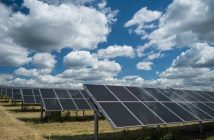- The City of Cape Town has announced that water restrictions have been eased from Level 6B to Level
- Tariff reductions of between 26, 6% and 70% per kilolitre of water are expected depending on the usage and tariff category.
- Dams are reported to be currently standing at 68% capacity.
The City of Cape Town has announced that it will be easing the City’s current water restrictions from Level 6B to Level 5; however, urges residents to continue with responsible water consumption. The new restrictions will come into effect on 1 October 2018. Consumers can also expect a tariff reduction between 26,6% and 70% per kilolitre of water depending on the usage and tariff category.
The water usage target will be increased from 50 litres to 70 litres per person per day and the daily collective consumption target will increase by 50 million litres to 500 million litres to ensure that water conservation efforts remain in place.
The Western Cape Water Supply System’s dams are reported to be currently standing at 68% capacity, a significant improvement on the situation at the end of the previous winter when they were at 38% capacity. The extremely low supply storage resulted in the imposition of Level 6B water restrictions in February 2018.
The enormously positive response from the residents when called upon to reduce water usage, as well as advanced pressure and water management programmes by the City, saved the day and Cape Town avoided the worst-case scenario dubbed Day Zero.
The relaxation of restrictions is a moderate proposal that is based on a hydrological risk assessment that indicates that it is safe to do so at the level of risk that is agreed upon. The amended Level 5 restriction guidelines for water usage will apply. The City is confident that the significant behavioural change that they have seen pertaining to water conservation will prevail to a large extent.
The key elements of Level 5 restrictions are as follows:
- An increase in the personal water use limit from 50 litres per person per day to 70 litres per person per day.
- A resetting of the overall City water usage target from 450 million litres per day to 500 million litres per day.
- A relaxation of restrictions for commercial and industrial water users from a 45% to a 40% usage reduction.
- A lowering of tariffs to Level 5 tariffs.
Residential tariffs (excluding VAT):
- 0 – 6 kL: Down 26,6% from R28,90/kL to R21,19/k
- 6 – 10,5 kL: Down 25% from R46/kL to R34,43/kL
- 10 – 35 kL : Down 56% from R120,27/kL to R52,39/kL
- Above 35 kL: Down 70% from R1 000/kL to R300/kL
Commercial and Industrial tariffs
- Down 18% from R45,75/kL to R37,50/kL
This article was originally published on ESI Africa and is republished with permission. Link to original











